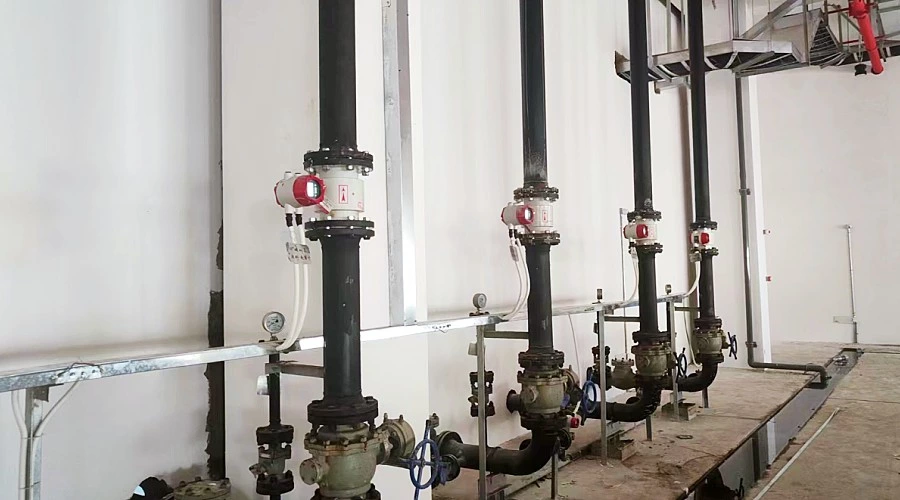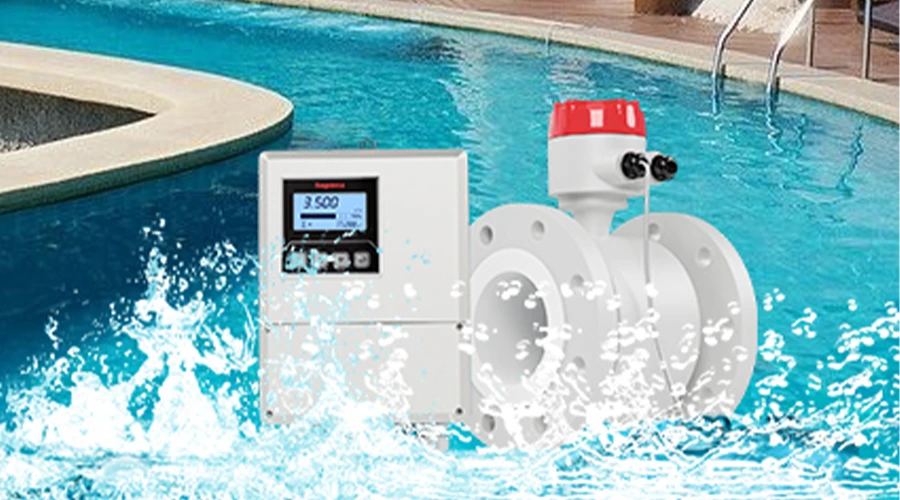Pool Flow Meter: A Key Tool for Optimal Pool Maintenance
Introduction
When it comes to owning a swimming pool, maintenance is paramount to ensure the water is safe, clean, and properly circulated. One essential tool that every pool owner should consider investing in is a pool flow meter. This device plays a crucial role in monitoring water flow, allowing for efficient pool maintenance and enhancing overall swimming pool experience. In this article, we will delve into the significance of pool flow meters and how they contribute to the optimal functioning of swimming pools.
Understanding the Pool Flow Meter
Before we dive deeper into the benefits, let's first understand what a pool flow meter is. A pool flow meter is a precision instrument designed to measure the flow rate of water circulating through the pool's filtration system. It provides accurate data on the water flow, helping pool owners and operators make informed decisions about maintenance and water treatment.
Importance of Pool Flow Meters
Pool flow meters play a crucial role in the proper maintenance and management of swimming pools. These devices are essential for various reasons, ensuring the safety, cleanliness, and efficiency of the pool system. Let's explore the importance of pool flow meters in more detail:
1. Efficient Filtration Monitoring
Pool flow meters provide real-time data on the rate at which water flows through the pool's filtration system. This information is invaluable for maintaining proper water filtration. Efficient filtration ensures that debris, bacteria, and other contaminants are effectively removed from the water, providing a safe and enjoyable swimming environment.
2. Detecting Blockages and Leaks
Flow meters can identify any blockages or leaks within the pool's plumbing system. Detecting such issues early on helps prevent water loss and potential damage to the pool's infrastructure. By addressing these problems promptly, pool owners can avoid costly repairs and minimize downtime.
3. Energy and Cost Savings
Properly calibrated pool flow meters allow pool owners to optimize their filtration system's energy consumption. By ensuring that the water flow rate is at an optimal level, energy costs can be significantly reduced. This not only benefits the pool owner financially, but also contributes to a more sustainable and eco-friendly approach to pool maintenance.
4. Balancing Chemical Treatments
Maintaining the right chemical balance in the pool is crucial for water safety and swimmer health. Pool flow meters help ensure that chemical treatments are evenly distributed throughout the pool. This even distribution prevents overuse or underuse of chemicals, ensuring a safe and clean swimming experience.
5. Preventing Equipment Overload
Pool equipment, such as pumps and filters, can suffer from overload if the water flow rate exceeds their recommended capacity. Flow meters help monitor and control the flow rate, preventing equipment strain and potential breakdowns. By avoiding equipment overload, pool owners can extend the life of their pool equipment and reduce repair and replacement costs.
6. Optimizing Water Circulation
Proper water circulation is essential for a well-maintained pool. Pool flow meters assist in achieving an optimal water circulation, which helps distribute heat and chemicals evenly throughout the pool. This results in a more comfortable swimming environment and consistent water quality.
7. Compliance with Regulations
Some jurisdictions and health codes require swimming pools to have flow meters installed. Compliance with these regulations not only ensures pool safety, but also prevents potential fines and legal issues.
Pool flow meters are essential tools for pool owners and operators. They provide accurate data on water flow, which contributes to efficient pool maintenance, energy savings, and optimal water quality. With their ability to detect blockages, leaks, and equipment overload, flow meters help prevent costly damage and ensure a safe and enjoyable swimming experience for all pool users. Therefore, investing in a high-quality pool flow meter is a wise decision for any pool owner looking to enhance their pool's performance and longevity.

Types of Pool Flow Meters
There are two main types of pool flow meters commonly used in swimming pools:
1. Mechanical Flow Meters
Mechanical flow meters are the traditional and more affordable option. They work based on a simple mechanism, typically using a paddle wheel or turbine to measure water flow. As water passes through the meter, the paddle wheel or turbine rotates, and the number of rotations is recorded to calculate the flow rate.
Advantages:
- Cost-effective: Mechanical flow meters are generally more budget-friendly compared to other types.
- Suitable for Most Pools: They can work well for standard-sized residential and smaller commercial pools.
Disadvantages:
- Lower Accuracy: Mechanical flow meters may not provide the same level of accuracy as modern alternatives.
- Regular Maintenance: These meters might require more frequent maintenance and calibration to ensure accurate readings.
- Limited Features: They may lack advanced features found in more modern flow meters.
2. Magnetic Flow Meters
Magnetic flow meters, also known as magmeters, are a more advanced and accurate option. They operate on the principle of Faraday's Law of electromagnetic induction. When water flows through a magnetic field created by the meter, an electrical voltage is induced, which is directly proportional to the flow rate.
Advantages:
- High Accuracy: Magnetic flow meters provide highly accurate and reliable readings, making them suitable for precise pool management.
- Minimal Maintenance: These meters are generally low-maintenance, requiring less frequent calibration compared to mechanical meters.
- Durability: Magnetic flow meters are robust and can withstand harsh pool environments.
Disadvantages:
- Higher Cost: Magnetic flow meters are typically more expensive than mechanical ones, which might be a consideration for budget-conscious pool owners.
- Not Suitable for All Pools: In some cases, smaller pools may not require the high level of accuracy provided by magmeters.
When choosing the type of flow meter for a swimming pool, pool owners should consider their specific needs, budget constraints, and the level of accuracy required. For larger commercial pools or facilities where precise water flow measurements are crucial, magnetic flow meters are often the preferred choice. On the other hand, for smaller residential pools, mechanical flow meters might be sufficient to monitor water flow and maintain proper pool operation.
Ultimately, both types of flow meters serve the essential purpose of measuring water flow, allowing pool owners and operators to make informed decisions regarding pool maintenance, energy efficiency, and water quality.

Installation and Maintenance
Proper installation and regular maintenance of pool flow meters are essential to ensure accurate readings and efficient pool management. Here are some key considerations for installing and maintaining pool flow meters:
1. Proper Placement
Pool flow meters should be strategically installed in the pool's circulation system to obtain accurate readings. It is recommended to place the flow meter in a straight pipe section, away from any bends, elbows, or obstructions that could disrupt the flow of water. Proper placement ensures that the water passes through the meter evenly and without turbulence, resulting in reliable flow rate measurements.
2. Professional Installation
For optimal performance and accurate readings, it is best to have a professional install the pool flow meter. Certified technicians have the expertise to identify the ideal location for the meter based on the pool's unique setup. They can also ensure that the meter is securely installed and properly calibrated for precise measurements.
3. Calibration and Cleaning
Regular calibration and cleaning are vital to maintain the accuracy of the flow meter. Calibration involves comparing the meter's readings to a known standard and making adjustments if necessary. Pool owners should follow the manufacturer's recommended calibration schedule or seek professional assistance for this process.
Cleaning the flow meter is equally important, especially in environments with debris or mineral buildup. Sediment or impurities can affect the meter's performance and accuracy. Pool owners should regularly inspect the meter and clean it as needed to prevent any obstruction in the flow path.
4. Monitoring and Troubleshooting
Pool operators should monitor the flow meter regularly to ensure it is functioning correctly. Any sudden changes in the flow rate or irregular readings should be promptly investigated to identify potential issues. Troubleshooting should be carried out by trained personnel or in consultation with the flow meter manufacturer.
5. Replacement and Upgrades
Like any equipment, pool flow meters have a lifespan and may require replacement over time. If a flow meter is consistently providing inaccurate readings or experiencing frequent malfunctions, it might be time for a replacement. Upgrading to a newer model with improved features and capabilities could also be considered to enhance pool management efficiency.
6. Compliance and Safety
Ensure that the pool flow meter complies with relevant safety standards and regulations. Some jurisdictions may have specific requirements for flow meter installations in public pools. Adhering to these guidelines ensures the safety of pool users and avoids potential legal issues.
By following proper installation procedures and conducting regular maintenance, pool owners can rely on their flow meters to provide accurate data on water flow. This information is invaluable for efficient pool maintenance, water quality control, and overall energy and cost savings. With diligent care and attention, pool flow meters can contribute significantly to the optimal functioning and enjoyment of the swimming pool.
Enhancing Pool Safety
Balancing Chemical Treatments
By monitoring the flow rate, pool owners can ensure that chemical treatments are evenly distributed throughout the pool. Proper chemical balance is vital for keeping the water safe and swimmers healthy.
Preventing Equipment Overload
Flow meters help prevent equipment overload by ensuring that the water flow remains within the recommended limits. Overloading pool equipment can lead to premature wear and tear, causing costly repairs.
Conclusion
Investing in a pool flow meter is a smart decision for any pool owner. By providing real-time data on water flow, these devices enhance pool maintenance efficiency, ensure water safety, and contribute to energy and cost savings. Whether it's a mechanical or magnetic flow meter, the benefits they offer in terms of pool management are unparalleled.
Frequently Asked Questions
1. Do all pools require flow meters?
While flow meters are not mandatory for all pools, they are highly recommended for those seeking optimal pool maintenance and cost-efficiency.
2. Can I install a flow meter myself?
It is advisable to have a professional install the flow meter to ensure proper placement and accurate readings.
3. How often should I calibrate the flow meter?
Flow meters should be calibrated at least once a year or according to the manufacturer's recommendations.
4. Are magnetic flow meters worth the investment?
Magnetic flow meters offer higher accuracy and durability, making them a valuable long-term investment for pool owners.
5. Can a pool flow meter detect leaks outside the pool?
Yes, a pool flow meter can help detect leaks in the plumbing system both inside and outside the pool, saving water and preventing damage.
A pool flow meter is a vital tool for every pool owner who wants to maintain their pool efficiently, ensure water safety, and save on maintenance costs. Whether you opt for a mechanical or magnetic flow meter, the benefits they offer far outweigh the initial investment. By measuring water flow accurately, pool flow meters allow you to enjoy a clean, well-maintained pool, providing a delightful swimming experience for you, your family, and friends. So, take the plunge and equip your pool with this indispensable device today!



